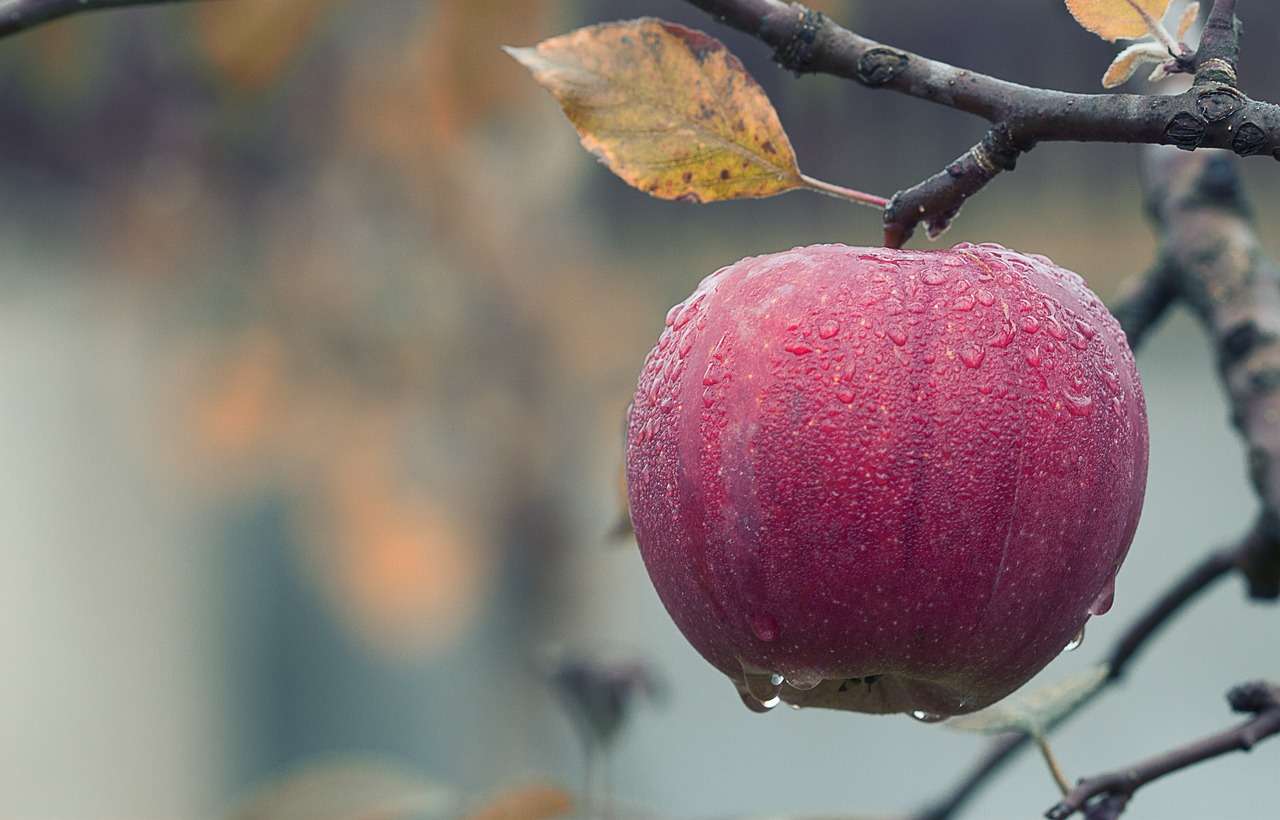Sustaining steady blood sugar levels throughout pregnancy is essential for the health of the mother and the growth of the fetus. Knowing which fruits are safe to eat and which ones should be avoided is an important part of this management.
This guide will examine the relationship between fruit consumption and gestational diabetes, with a particular emphasis on fruits that have the potential to elevate blood glucose levels.

By the time this article is out, you’ll know more about how to balance your fruit consumption to promote a happy, healthy pregnancy and properly manage gestational diabetes.
Understanding the Impact of Fruits:
Although fruits are an essential part of a balanced diet, women who are pregnant or have gestational diabetes should exercise caution when consuming fruits. Gestational diabetes fruits to avoid with gestational diabetes content that can quickly elevate blood glucose levels.
Fruits’ effects on the management of gestational diabetes rely on their GI and carbohydrate content. Fructose is one of the naturally occurring sugars found in bananas, grapes, and mangoes, among other fruits.
These fruits can quickly raise blood sugar levels after consumption, which can interfere with the body’s ability to respond to insulin. One medium-sized banana, for example, can have up to 14 grams of sugar, which makes a substantial contribution to the daily allowance of carbohydrates.

Understanding these dynamics is essential for women managing gestational diabetes. Opting for fruits lower in sugar and higher in fiber, such as berries, apples, and citrus fruits, can help stabilize blood sugar levels.
These fruits have a lower GI, meaning they release glucose more slowly into the bloodstream, reducing the risk of spikes.
By making informed choices about fruit consumption, women can better manage their condition, ensuring both maternal health and optimal fetal development during pregnancy.
Top Fruits to Avoid with Gestational Diabetes:
For women with gestational diabetes, identifying and avoiding fruits high in natural sugars is crucial to managing blood glucose levels effectively. These fruits, categorized by their high glycemic index (GI) and sugar content, can lead to rapid spikes in blood sugar levels, posing risks to both maternal and fetal health.
- Bananas: While nutritious, bananas are rich in sugars like fructose and can significantly elevate blood glucose levels when consumed in larger quantities.
- Grapes: Grapes are another fruit to be cautious of due to their concentrated sugar content. Even a small handful can contribute a substantial amount of sugars to the diet.
- Mangoes: Known for their sweetness, mangoes contain high levels of natural sugars. Consuming mangoes can lead to rapid increases in blood sugar levels if not managed carefully.
- Pineapples: Pineapples are delicious but contain considerable amounts of natural sugars. Moderation is key when including pineapples in a gestational diabetes diet plan.
Understanding which fruits to avoid is essential for maintaining stable blood sugar levels throughout pregnancy. By substituting high-sugar fruits with alternatives lower in sugar and higher in fiber, such as berries, apples, and citrus fruits, women can better manage their condition and support their overall health and well-being during this critical period.
Healthy Alternatives:
Finding suitable alternatives to high-sugar fruits is crucial for women managing gestational diabetes. Opting for fruits lower in sugars and higher in fiber can help maintain stable blood glucose levels while providing essential nutrients for both mother and baby.

- Berries: Berries such as strawberries, blueberries, and raspberries are excellent choices for women with gestational diabetes. They are low in sugars and high in fiber, which helps slow down the release of glucose into the bloodstream.
- Apples: Apples are rich in fiber and have a moderate glycemic index, making them a suitable option for managing blood sugar levels during pregnancy. Choosing whole fruits over juices is recommended to maximize fiber intake.
- Citrus Fruits: Oranges, grapefruits, and tangerines are citrus fruits that are lower in sugars compared to other fruits. They also provide vitamin C and fiber, contributing to a balanced diet for pregnant women.
- Pears: Pears are another fruit option that is lower in sugars and high in dietary fiber. They can be a satisfying and nutritious addition to meals or snacks for women with gestational diabetes.
Incorporating these low-glycemic index fruits into daily meal plans can help women with gestational diabetes manage their condition effectively while ensuring adequate nutrition for themselves and their babies. By making informed choices about fruit consumption, women can support their health throughout pregnancy and beyond.
Practical Tips for Everyday Eating:
Maintaining a balanced diet while managing gestational diabetes requires practical strategies for incorporating safe fruit choices into daily meals and snacks.
- Portion Control: Monitor portion sizes of fruits to avoid consuming excessive sugars at once. For example, instead of eating a whole banana, opt for half to manage sugar intake effectively.
- Pairing with Protein and Fiber: Combine fruits with protein-rich and fiber-rich foods to slow down the absorption of sugars. For instance, pair an apple with a handful of nuts or yogurt for a satisfying and balanced snack.
- Timing of Consumption: Distribute fruit consumption throughout the day to prevent sudden spikes in blood sugar levels. Eating smaller portions of fruits with meals or as part of snacks can help maintain stable glucose levels.
- Choosing Whole Fruits: Opt for whole fruits rather than juices to benefit from their fiber content, which helps regulate blood sugar levels. Whole fruits also provide more satiety compared to juices.
By implementing these practical tips, women can enjoy a varied and nutritious diet while effectively managing gestational diabetes. These strategies not only support blood sugar control but also contribute to overall maternal health during pregnancy.
Meal Planning Strategies:
Effective meal planning is essential for women with gestational diabetes to maintain stable blood sugar levels while ensuring adequate nutrition throughout pregnancy.
- Portion Management: Control fruit portions to limit sugar intake. For example, include smaller servings of high-sugar fruits like mangoes or grapes and balance them with lower-sugar options like berries or apples.
- Timing and Distribution: Spread fruit consumption evenly throughout the day to prevent sudden spikes in blood glucose levels. Incorporate fruits into meals and snacks to promote satiety and steady energy levels.
- Incorporating Low-Glycemic Index Fruits: Choose fruits with a lower glycemic index (GI) to minimize the impact on blood sugar levels. Examples include berries, citrus fruits, and apples, which provide essential nutrients without causing rapid glucose spikes.
- Meal Pairing: Pair fruits with protein-rich foods, such as lean meats, eggs, or nuts, and fiber-rich foods like whole grains and vegetables. This combination helps stabilize blood sugar levels and promotes overall meal satisfaction.
By integrating these meal-planning strategies, women can effectively manage gestational diabetes while enjoying a diverse and nutritious diet. Consultation with healthcare providers or nutritionists can further personalize meal plans to meet individual needs and support optimal maternal and fetal health during pregnancy.
Conclusion:
In conclusion, managing gestational diabetes involves mindful choices, especially when it comes to gestational diabetes fruits to avoid. By understanding the impact of high-sugar fruits and opting for alternatives with lower glycemic indexes, women can better control their blood sugar levels during pregnancy.
Incorporating these strategies, along with consultation with healthcare providers, ensures a balanced diet that supports both maternal health and fetal development. Empower yourself with knowledge and make informed decisions to navigate this important phase with confidence and care. Click to learn more.
FAQs:
1: Which fruits should I avoid if I have gestational diabetes?
Fruits high in natural sugars like bananas, grapes, mangoes, and pineapples should be limited or avoided due to their potential to spike blood glucose levels.
2: What are some low-sugar alternatives to high-sugar fruits?
Opt for berries (such as strawberries, and blueberries), apples, citrus fruits (like oranges, and grapefruits), and pears, which have lower glycemic indexes and provide essential nutrients.
3: How can I manage fruit intake to control blood sugar levels?
Practice portion control, pair fruits with protein and fiber-rich foods, and spread consumption throughout the day to maintain stable blood glucose levels.
4: Can I eat fruit if I have gestational diabetes?
Yes, but it’s important to choose fruits wisely and monitor their impact on your blood sugar. Consult your healthcare provider for personalized guidance.
5: What should I do if I have questions about my diet and gestational diabetes?
Consult a registered dietitian or healthcare provider specializing in gestational diabetes to create a tailored diet plan that meets your nutritional needs and supports your health goals.
